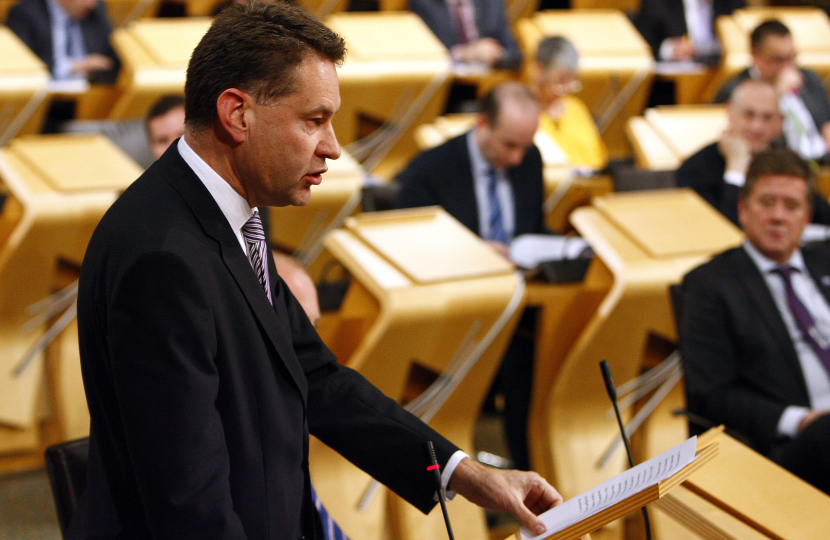
Murdo Fraser MSP supports concerns raised by a consumer watchdog regarding risks facing rural communities due to the transition from traditional phone networks to digital.
The Scottish Conservative politician was reacting to Consumer Scotland highlighting that this shift may lead to service disruptions during power outages, particularly in remote areas prone to severe weather. The watchdog pointed out that new digital landlines require battery backup to function during power cuts, thus posing challenges for emergency communications.
Mr Fraser raised this issue two years ago following residents in the Glenshee and Strathardle areas of Perthshire having to live without power for days and being without means to phone family and friends. The area suffered a massive power outage due to the impact of Storm Arwen in November 2021.
The ferocious storm brought down trees and damaged fibre cable in the area, leading to a loss of broadband and mobile phone coverage.
As a result, Ofcom subsequently wrote to BT after the chaos caused by storms Arwen and Eunice left communities like those living in the Glenshee and Strathardle areas without power for days and asked the company to find new backup options for phones that depend on an internet connection rather than old copper wires as ‘a matter of urgency.’ BT then temporarily stopped the roll-out of its digital-only phones.
Commenting, Mr Fraser said: “I fully support the concerns raised by Consumer Scotland with regard to the plan to roll-out a digital phone network after being contacted by irate and anxious Perthshire residents following Storm Arwen back in 2021. These residents were left without power for days and left without means to communicate the outside world due to the impact of the storm. This was a horrendous situation for all concerned and I would hope we never see a repeat of this again.
“SSEN and mobile network providers worked extremely hard to identify the problem but there was still a long period before some people got connected – some had to wait over a week. People being without power in the winter is bad enough, but these residents were also without means of communication as we found that because a lot of people had moved over to voice over the Internet phone lines, they did not have traditional land lines. They were relying on the mobile network, which was down because it had lost power.
“Fortunately, there weren’t any tragedies in the area but these were only averted by the many robust local networks which had been established through the Covid pandemic, whereby people knew where some people had been cut off and were able to support them.”
Mr Fraser continued: “It is good to see Consumer Scotland pointing out that new digital landlines require battery backup to function during power cuts, which will pose challenges for emergency communications. By the end of 2025, most households will switch to Voice over Internet Protocol (VoIP) technology, which relies on broadband internet but there are many areas in rural Perthshire that have poor or unreliable broadband at the moment.
“Consumer Scotland has also highlighted that consumers in rural areas rely more on landlines due to poorer mobile coverage and experience more frequent and longer-lasting power cuts and are recommending launching a national campaign to inform and prepare consumers. I fully support this and will be backing their call.”


